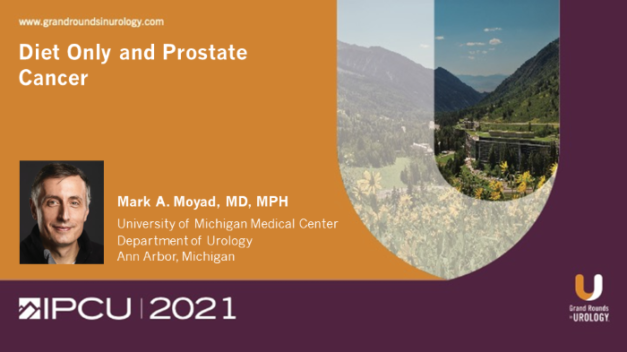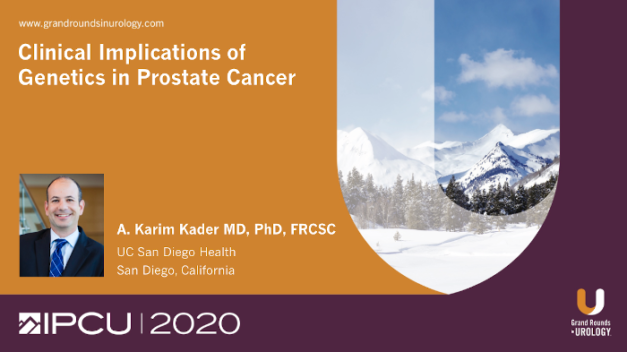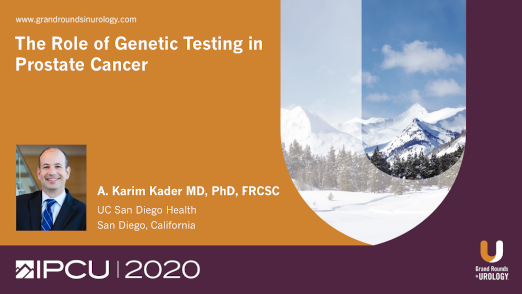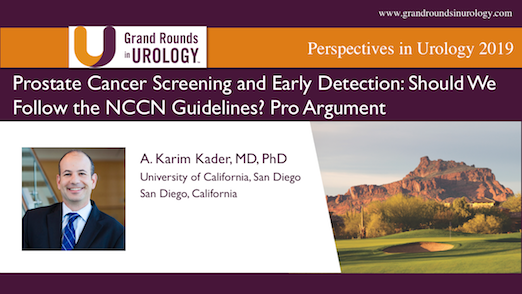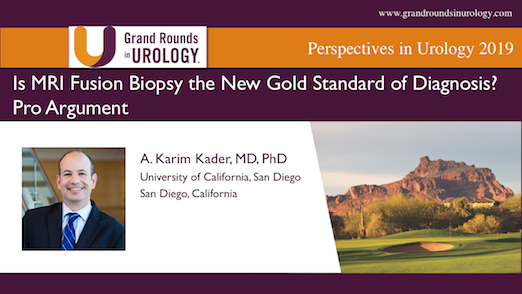Diet Only and Prostate Cancer
Mark A. Moyad, MD, MPH, Jenkins/Pokempner Director of Preventive/Complementary and Alternative Medicine (CAM) in the University of Michigan Department of Urology, reviews several trials showing the impact of dieting to lose weight on cancer and cancer recurrence, focusing particularly on prostate cancer. He begins with a discussion of the WINS and WHEL trials on dietary changes and breast cancer which, together, found that improving the quality of a diet does not appear to have a profound impact on cancer or recurrence, but that while dieting with a focus on weight loss reduces recurrence rates and establishes a number needed to treat (NNT) of 38. Dr. Moyad continues with preliminary data from the Success-C trial, a study with the goal of using caloric reduction and exercise to reduce weight and is showing that those who adhere to the lifestyle changes have significantly improved rates of disease-free survival. He then looks at the POUNDS LOST trial, whose results suggest that, regardless of the weight-loss process, if weight loss occurs then health benefits can be reached. Dr. Moyad also discusses the CALERIE and MEAL trials. The former study had patients cut back calories by 13% on average and showed that slow methodical weight-loss creates heart-healthy metabolic and numeric changes. The latter had active surveillance participants significantly increase their vegetable intake but has not currently found any remarkable differences between the control and intervention groups. He also discusses the latest impressive vegan randomized study, which demonstrated dramatic weight loss of 14 lbs over 16 weeks utilizing a practically unrecognized caloric reduction strategy. He summarizes the results of over 85 studies on excess alcohol and adipose tissue which support the idea that both are carcinogens and are shown to reduce the efficacy of some drugs. Dr. Moyad also observes that data on lycopene shows that increased fruit and vegetable intake is supportive of overall heart health, how recent research shows no clear cause and effect link between cancer and vitamin D or omega 3s, and how the MANSMED trial shows the benefit of using metformin in addition to standard-of-care therapy. He concludes by observing that heart-healthy calorie restriction programs that encourage adherence, happiness, and healthy outcomes are good for managing prostate cancer, and by briefly discussing the potential of semaglutide injections to help some patients lose weight.
Read More
